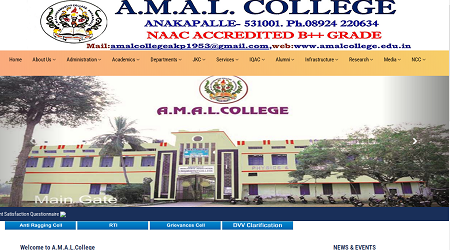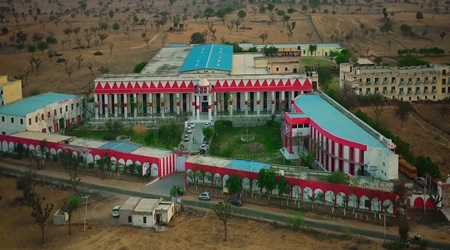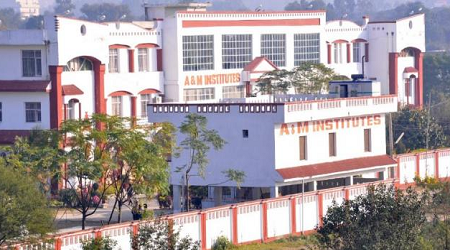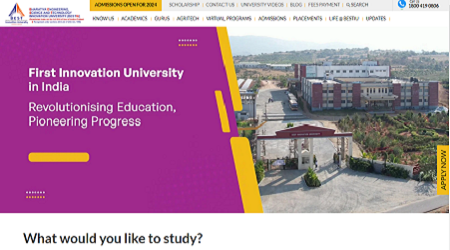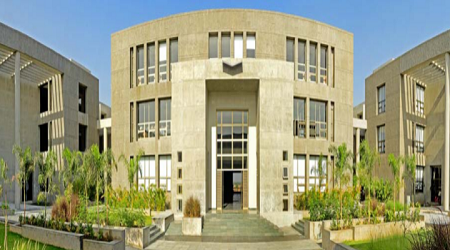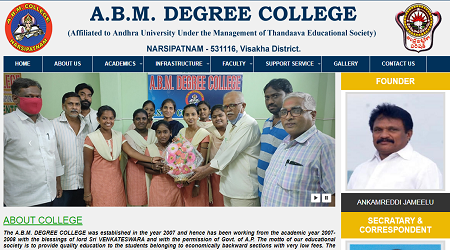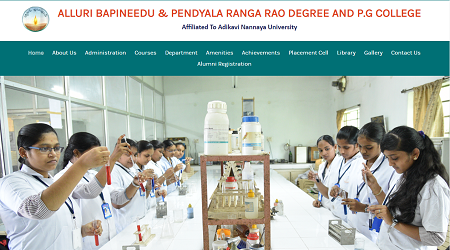Diploma in Otorhinolaryngology admission latest notification
Diploma in Otorhinolaryngology, often known as P.G. Diploma in Otorhinolaryngology or D.L.O., is a postgraduate ENT programme. Otorhinolaryngology, often known as Otolaryngology, is a specialty of medicine that focuses on the diagnosis and treatment of illnesses of the ear, nose, and throat, as well as head and neck. Unless otherwise noted, some institutes call the course Diploma in E.N.T (Otorhinolaryngology/Otolaryngology), which is the same as Diploma in E.N.T (Otorhinolaryngology/Otolaryngology). The goal of the Post Graduate Diploma in Otorhinolaryngology programme is to generate a competent Otolaryngologist who understands the health requirements of ENT patients and fulfils professional duties in accordance with National Health Policy and professional ethics. After completing this course, candidates will understand the critical relevance of a deafness control programme in the context of the country’s health priorities.
THREE_BUTTON
Course Highlights:
| Degree | Diploma |
| Full-Form | Diploma in Otorhinolaryngology |
| Duration | 2 Years. |
| Age Between | 17 – 23 years. |
| Eligibility | More than 50% in NEET PG Good grades in MBBS |
| Course Fees | INR 15,000 – 10 LPA |
| Average Starting Salary | INR 3.6 – 25 LPA |
| Job Positions | ENT Doctor, ENT Surgeon, Medical Writer etc. |

Course Eligibility:
The following are the requirements for applying for an otorhinolaryngology diploma:
- Candidates must have earned their MBBS from an MCI-approved institution.
- They must have completed a minimum of one year of internship at a medical facility.
- In MBBS, they need have a minimum aggregate of 65 percent.
THREE_BUTTON
Admission Process:
Government medical colleges do not have their own entrance exams and instead accept students based on the results of national or state-level entrance exams. Candidates must complete the following in order to be considered for such admission:
- Candidates must go to the institute’s official website and fill out an online application form.
- The application will include all of the applicant’s personal and academic information, as well as the results of the national or state level admission exam.
- The students will be evaluated based on their admission exam results as well as their UG level grades.
- The shortlisted students’ merit list will be publicised, and they will be contacted for counselling.
Entrance Exams:
Almost all of India’s leading institutions for DLO admit students largely through an entrance exam. Some institutions accept national level tests, while others hold their own to give college-level admission exams. The following are some of the most popular DLO admission exams:
- AIIMS PG
- NEET PG
- DNB PDCET
Entrance Exams Syllabus:
Students interested in pursuing a DLO degree should thoroughly study for the test pattern and material well ahead of time. For pupils to better prepare for the test and ace it. In general, the most common entrance exam follows the following pattern:
- 100 marks are divided into multiple-choice questions that must be completed in the allocated time, which is usually 3 hours.
- The paper is divided into three sections: general aptitude, logical analysis, and core subjects.
- The Core Subjects will account for roughly 15% of the overall points, the General Aptitude section for 15% of the total marks, and the remaining 70% of the total marks will be summed up by the paper’s core subject.
How to Apply?
Admissions information for DLO courses is readily available on the official websites of the institutions to which students wish to apply. Admissions registration can be done both online and offline, however the DLO eligibility must be validated first.
If students choose to complete the procedure in an offline manner, they must visit the college campus, fill out an application form provided by the institution, gather the necessary materials, and present all requisite certificates and papers. To apply online, go to the admissions website of the college and fill out the application form there.
Documents Requirement:
- Mark sheet and pass certificate of your Class X or XII examination.
- Proof of date of birth.
- School leaving certificate
- Transfer certificate
- Domicile certificate/ residential proof or certificate
- Provisional certificate
- Character certificate
- Scheduled Caste/ Scheduled Tribe/Other Backward Caste certificates
- Proof of disability (if any)
- Migration Certificate
Top College:
| GITAM University |
| BITS Pilani |
| Vignan University |
| Banasthali Vidyapith |
| NIMS University |
| Invertis University |
| Lovely Professional University |
| Centurion University of Technology and Management, |
| Guru Nanak Dev University |
| Jaipur National University |
| Gajra Raja Medical College |
| Adichunchanagiri Institute of Medical Sciences and Research Centre, Gwalior |
| Rajah Muthiah Medical College, Kodaballi |
Course Subjects:
The DLO lasts two years and consists of four semesters that must be completed in order to complete the programme. The DLO institutions in India feature a syllabus and disciplines that are meant to equip students with unique and futuristic skills and training.
The students will also learn about several strategies for being responsible doctors and caregivers as part of the training. The DLO syllabus offers students with knowledge of ENT and the symptoms and illnesses that affect them, allowing them to better themselves. The following are some of the major topics:
- Ear and Audiology
- Larynx, Pharynx, and Oesophagus
- Radiology
- Immunology
- Laser Surgery
- Nuclear Medicine
Future Course:
After completing their MBBS, individuals might pursue a diploma in otorhinolaryngology. Following are some of the most common higher education options for students who have completed a DLO:
- PhD
- MDS
Future Job Scope:
The DLO programme will enhance MBBS graduates’ qualifications, increasing their chances of being employed. Graduates of the DLO programme can work as doctors, assistants, surgeons, otolaryngologists, and otorhinolaryngologists at both private and public institutions. As a result, this course provides students with a broader range of work and higher education prospects. Graduates can apply for the following positions:
- ENT Doctor
- ENT Surgeons
- Otolaryngologists
- Otorhinolaryngologists
- Research Scientist
- Scientific writer
Salary Average:
The average compensation for a DLO graduate is between INR 3.5 and 25 LPA (PayScale), and it rises with experience and skills.
THREE_BUTTON
FAQs:
| What does otorhinolaryngology deal with, exactly? |
| It’s a medical speciality that focuses on ear, nose, and throat diagnosis and treatment. |
| Is the NEET PG exam essential for admission to an otorhinolaryngology diploma programme? |
| No, for admission to postgraduate programmes such as MS, MD, and MCh, NEET PG is essential. Another national-level test for diploma courses is the DNB PDCET. |
| What is the difference between an otorhinolaryngology diploma and an MS in otorhinolaryngology? |
| A physician can specialise in general ENT therapy with a diploma course, but after MS, they are eligible and specialised to do ENT surgery. |
| Is otorhinolaryngology a worthwhile profession to pursue? |
| Yes, it is a rewarding profession. Any specialty in medicine is beneficial since it necessitates specific knowledge and abilities that may be acquired by anyone. Years of study and experience are required, thus competition is minimal and demand is strong. |
| How long will it take you to become an otolaryngologist? |
| A career as an otolaryngologist can take anywhere from 7 to 8 years to develop. It will take 5 years to complete an MBBS and 2 years to get a diploma or 3 years to complete an MS in otorhinolaryngology. |
| Is there a job path available following otorhinolaryngology? |
| To begin a career as an Otolaryngologist, most MBBS graduates complete a specific diploma in otorhinolaryngology. However, if they want to broaden their professional prospects, they can become a general physician or a medical professor. |
| How long does it take to train to be an otolaryngologist? |
| Ans. An otolaryngologist must complete four years of college/institute work, four years of medical school, and then five years of residency training in this field. Students will then go to 51 months of increasing specialisation instruction before taking the board certification test. |
Read More
Latest News & Updates
- Top Engineering Colleges in India; Admission Procedure and Deadlines.
- The Role of Group Discusssions in the MBA Admission Process
- How to apply for scholarships to cover Jaipur National University PGDCA Fees
- Jaipur National University Fees for International Students: What to Know
- Tips for Budgeting Jaipur National University PGDCA Fees
- PhD Admission 2025: Required Documents and Application Tips.
- How to Choose a Topic for Research Proposal in India
- Common Mistakes to Avoid Research Proposal Writing in India
- The Importance of a Good Research Proposal Writing in India's Academic System 2025
- How to write a Great Research Proposal for PhD Admission 2025
Top Courses
- BACHELOR OF TECHNOLOGY IN ELECTRICAL ENGINEERING LATERAL ENTRY
- BACHELOR OF COMMERCE HONOURS IN MARKETING MANAGEMENT
- BACHELOR OF ARTS HONOURS IN GRAPHIC DESIGN
- Maximum Permissible Exposure
- BACHELOR OF TECHNOLOGY IN SOFTWARE ENGINEERING LATERAL ENTRY
- DIPLOMA IN ELEMENTARY EDUCATION
- BACHELOR OF BUSINESS ADMINISTRATION IN ACCOUNTING AND INFORMATION SYSTEMS
- BACHELOR OF ARTS IN SOCIAL SCIENCE
- BACHELOR OF ARTS IN TABLA
- BACHELOR OF SCIENCE HONOURS IN FASHION TECHNOLOGY


